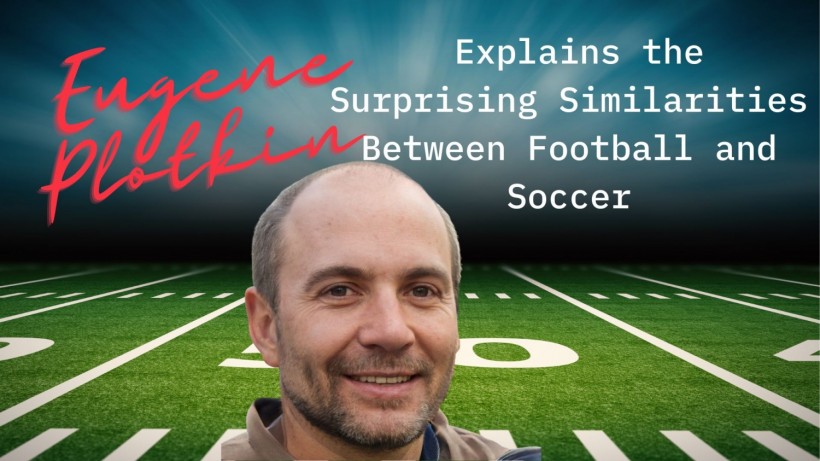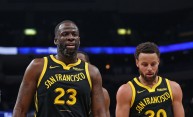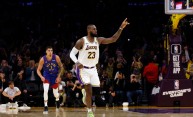
In 2022, the World Cup will coincide with the concluding weeks of the National Football League regular season. For the first time, American viewers will be able to watch national teams vying for the world's most historic soccer championship on the same days that NFL teams battle for a chance at the postseason.
When Eugene Plotkin, the renowned investment banker and CEO of TechWallet, is off duty, he's a sports enthusiast who can school even the biggest sports buff about American football and European soccer.
"As an American citizen who was born in Europe, I have a deep understanding and appreciation of both football and soccer," shares Plotkin. "And yet I'm part of a significant minority because the vast majority of sports fans I know are either football fans or soccer fans. Very few truly enjoy both sports to the same degree."
Plotkin adds that he always feels like he's shuttling between two separate worlds when he watches a football game versus when he watches a soccer match.
"Even the sports bars are different," Plotkin notes. "The bars that show NFL games don't show soccer games. And vice versa. It's two separate universes. I've heard football fans talk about how soccer is boring, and soccer fans talk about how football is indecipherable. There is this bias on both sides and neither side is willing to take the time or effort to appreciate the similarities between the two sports."
Brothers From Another Mother: Eugene Plotkin on 'Fraternal Sports'
Eugene Plotkin explains that football and soccer are in some ways fraternal sports that share multiple characteristics. Yet many sports fans remain unaware of the extent and depth of these commonalities.
"In both sports you have 11 players on each team," Plotkin notes. "In both sports, the fields are of similar length, although the soccer pitch is a bit wider than the football grid. In both sports, the objective is to move the ball down the field to the opposing side's goal line and most scores only happen once the attacking team is in range, which is around 20 to 30 yards from the goal line."
Eugene Plotkin points out that the games were invented within a decade of each other. Modern soccer was created in the 1860s in England, while modern football, with its rugby-style rules, was formed in the 1870s in the United States.
"Football and soccer are both contact sports," Plotkin continues. "While football takes contact to another level, both sports are highly physical. Also, both allow players to be substituted during the game."
As a finance expert, Eugene Plotkin is especially attuned to the strategic elements of sports. He notes that both football and soccer require effective coaching and game plan preparation in order for teams to perform at their best.
"The highest-paid coaches in the world are football and soccer coaches," Plotkin says. "The reason for this is not only that these sports are highly popular, but also that they are intricately complex. The players in these sports are experts in specific positions. Just as you would not expect a football running back to play at cornerback, so you would not expect a soccer fullback to play at forward. Optimizing the play of your own specialists while ensuring your team is in sync and disrupting the other team's play is an intricate process with hundreds of moving parts."
Advanced Technology, Machine Learning, and Statistical Models
In recent years, both professional football and professional soccer have increasingly incorporated advanced technology. Precision cameras are used for instant replay on the field, to identify player weaknesses, and to study opposing teams. Connected devices are used to map the motion of not only the players on the field, but also of individual player limbs and actions. Machine learning and statistical models are used to discover trends and identify highly effective performance tactics.
"Everything from how a player moves, to how a player touches the ball, to how a player reacts is captured, dissected, and optimized," Plotkin explains. "Professional football and soccer players are the best of the best, so every tactical advantage, no matter how small, can make the difference between winning and losing on game day."
Eugene Plotkin notes that there's another unexpected commonality between football and soccer, and that is the fans. American football is the most watched sport in the United States, which is the world's largest economy. Meanwhile, soccer is the most watched sport across the globe.
"As two of the most popular sports, soccer and football both command an incredibly passionate fan base," Plotkin says. "Many of these fans would likely appreciate both sports, but most do not give themselves the chance. Given the complexity of each sport, it requires time and patience to fully appreciate what is happening on the field. Unfortunately, many soccer fans never take that time with football and many football fans never take that time with soccer.
"The differences in the pace of each game make it more difficult for fans to cross over," Plotkin continues. "Football fans are used to more frequent scoring, so soccer can seem uneventful. At the same time, soccer fans are used to a continuous pace of play, so football feels like it has too many stops in the game play."
Eugene Plotkin concludes by expressing his hope that an appreciation of the similarities between the two sports can open the door for fans of each to explore the other side.
"A contemporaneous World Cup and NFL season is a rare occurrence," Plotkin says. "I encourage everyone to take advantage of this opportunity to enjoy and learn a little bit more about the other sport."
© 2023 Sportsworldnews.com All rights reserved. Do not reproduce without permission.
* This is a contributed article and this content does not necessarily represent the views of sportsworldnews.com




